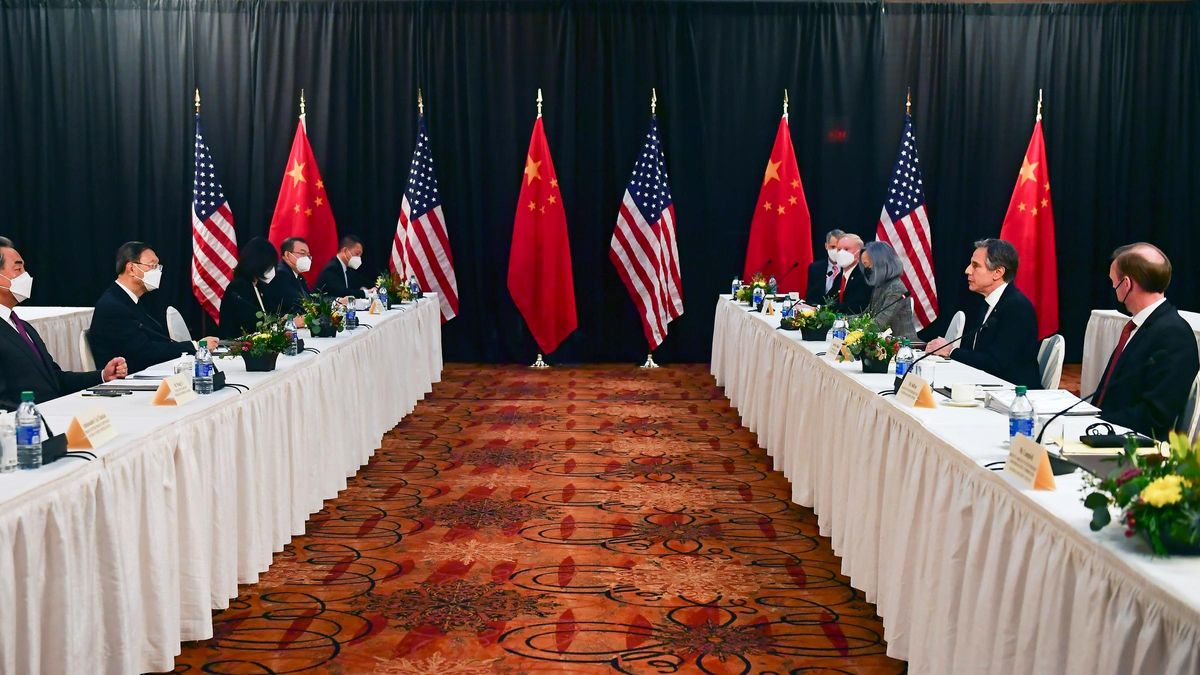Where does the US-China trade war stand today?

A few minutes every morning is all you need.
Stay up to date on the world's Headlines and Human Stories. It's fun, it's factual, it's fluff-free.
As the worst effects of the pandemic start to subside with the introduction of vaccines in the US and elsewhere, the results of the trade war continue to reverberate throughout the US economy.
The first high-level meeting between the United States and Chinese officials under the new Biden administration got off to a frosty start on March 18 in Anchorage, Alaska.
On one side, top-tier American diplomats blamed China for threatening the world’s stability. On the other, Chinese leaders asserted that America is unfair in its treatment of Black citizens.
Chinese leaders also accused the US of instigating other countries to take aggressive actions against China.
National Security Adviser Jake Sullivan and Secretary of State Antony Blinken were both at the meeting along with top Chinese diplomats Yang Jiechi and Wang Yi.
The tense meeting highlighted the feud between the two nations that dates back to former President Donald Trump’s decision to impose tariffs on the country, leading to a trade war.
To date, the Biden administration hasn’t rolled back the sanctions and tariffs imposed on China by the Trump administration, but President Joe Biden has said that he wants to work with China on common challenges, like climate change.
“We do not seek conflict, but we welcome stiff competition,” Sullivan said at the start of the meeting last Thursday, adding, “we will always stand up for our principles, for our people, and for our friends.”
The trade war between the US and China came following the Trump administration’s investigation of China’s unethical trade methods and its order that 25% tariffs be implemented on the country.
As the worst effects of the pandemic start to subside with the introduction of vaccines in the US and elsewhere, the results of the trade war continue to reverberate throughout the US economy.
Although the Biden administration has not changed the tariff structure set in place by Trump, sources say that Biden is closely examining the “phase one” trade deal signed by the Trump administration.
While discussions to address the trade war have yet to materialize, Biden signed an executive order at the end of February to investigate global supply chains in four industries that were significantly affected by the pandemic’s onslaught. These industries manufacture computer chips, large-capacity electric vehicle batteries, pharmaceuticals and critical minerals in electronics.
The semiconductor industry suffered at the start of the pandemic due to a lockdown imposed on Chinese factories. These industries were also affected by the US-China trade war.
Biden’s supply chain approach will require 100-day reviews for producers and distributors in these crucial industries and a yearlong study of supply chains in six broader industries.
Biden said that the pandemic made it clear that relying on another country for certain items was dangerous.
“As this pandemic has made clear, we can never again be in a position where we have to rely on a foreign country that doesn’t share our interest in order to protect our people during a national emergency,” he said.
The review’s primary goal is to understand to what degree these industries are in jeopardy and eventually to support industries at risk and lead suppliers out of delicate situations, but the exact strategy the Biden administration will apply to change the supply chain structures is not yet clear.
China has noted that the semiconductor industry requires global partnership to achieve solid growth.
Much remains at stake as the trade war extends beyond merely examining supply chains. The trade war incorporates Phase One items, including intellectual property rights, technology transfer, expansion of trade purchases and a general adversarial approach from the public to US-China trade that sees a significant trade surplus between the two countries as being unfair to the US.
For now, the standoff remains, but reports state that President Biden applauded Blinken’s performance and told reporters. “I am very proud of the secretary of state.”
In contrast, Chinese social media congratulated their own officials while criticizing the US and stating that American officials present at the meeting “lacked sincerity.”
Have a tip or story? Get in touch with our reporters at tips@themilsource.com




Comments ()